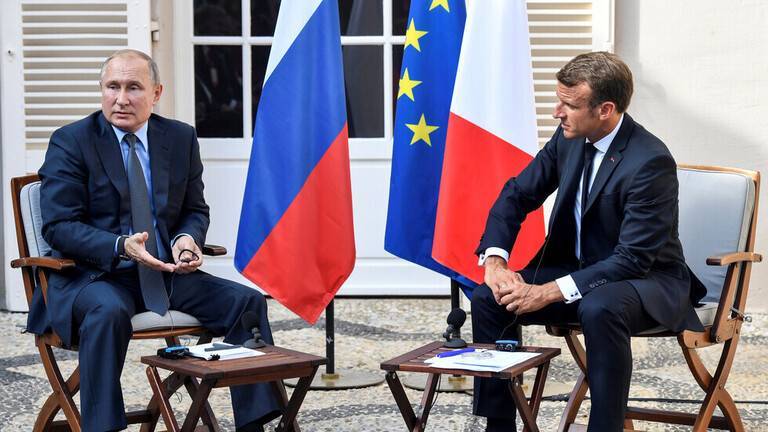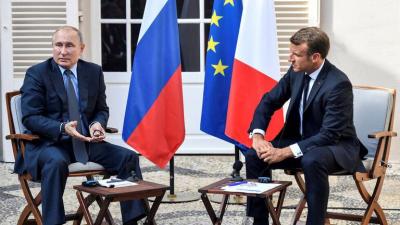Russian President Vladimir Putin told French President Emmanuel Macron during a phone call on Friday that the West has ignored Moscow's security demands aimed at reducing tensions regarding Ukraine and NATO, according to the Kremlin. The Kremlin's report on the call stated that "the responses from the United States and NATO did not take into account Russia's fundamental concerns about preventing NATO's expansion and the refusal to deploy missile systems near Russia's borders."
The Russian presidency continued, "The core issue has been ignored: how do the United States and its allies intend to apply the principle that no party should enhance its security at the expense of others?" The Kremlin indicated that Russia "will determine its next response" after thoroughly examining its opponents' replies.
During the call, Putin emphasized that Russia wants to continue working towards resolving the conflict between Kyiv and the Russian-backed separatists, which has been ongoing in Eastern Ukraine for eight years. In this regard, he reaffirmed his commitment to the existing negotiation format involving Moscow, Kyiv, Berlin, and Paris.
Earlier on the same day, French Foreign Minister Jean-Yves Le Drian stated that the situation regarding Ukraine is very tense, but dialogue with Russia remains possible. Le Drian said in an interview with "RTL": "It is up to (Russian President) Vladimir Putin to decide whether he wants consultation or confrontation."
This comes as Russia stated yesterday that it has become clear the United States does not intend to meet its main security demands amid the standoff over Ukraine, though Moscow leaves the door open for further dialogue. The United States and NATO provided a written response on Wednesday to Russia's demands regarding the reformation of post-Cold War security arrangements in Europe, following the buildup of Russian forces near the Ukrainian border. This Russian mobilization has raised concerns in the West about a potential invasion of Ukraine.
Kremlin spokesman Dmitry Peskov indicated that Moscow needs time to review the response and will not rush to conclusions, although statements from the U.S. and NATO describing Russia's key demands as "unacceptable" do not leave much room for optimism. Peskov added, "Based on what our colleagues (in the United States and NATO) said yesterday (Wednesday), it is clear that regarding the main issues outlined in the draft documents, we cannot say that our ideas have been taken into account or that there has been a willingness to consider them. However, we will not rush to judge."
The precise reaction from the Kremlin shows that Russia is not rejecting the responses from the United States and NATO and is not closing the door on diplomacy. For its part, the Russian Foreign Ministry stated that the best way to ease tensions is for NATO to withdraw its forces from Eastern Europe, while also seeking to alleviate fears of a potential invasion.
Russian Foreign Ministry spokesman Alexei Zaitsev stated, "We have already said repeatedly that our country does not intend to attack anyone. We consider the very idea of war between our peoples to be completely unacceptable."
Russia's security demands, presented in December, include halting NATO's expansion, preventing Ukraine from joining indefinitely, and withdrawing NATO forces and weapons from Eastern European countries that joined after the Cold War. The responses from the United States and NATO have not been disclosed, but they have already rejected these demands, while expressing a desire to engage on issues such as arms control, confidence-building measures, and limitations on military exercises in terms of size and scope.
Ukrainian, Russian, German, and French diplomats discussed the conflict in Eastern Ukraine in Paris on Wednesday and agreed to continue talks in Berlin within two weeks. Ukrainian Foreign Minister Dmytro Kuleba stated that the agreement to hold further talks indicates a likelihood of Russia continuing the diplomatic path for at least another two weeks.




